Some individuals have a hard time absorbing fructose, which makes a low fructose diet the obvious answer to prevent gastrointestinal distress. Fructose malabsorption causes IBS-like symptoms such as gas, constipation, diarrhea, indigestion, pain, abdominal cramps, and bloating. Fruit is a wonderful source of vitamins, minerals, and quality carbs so try to eat these fruits approved for a low fructose diet instead of eliminating fruit all together.
A low fructose diet limits or avoids foods with excess fructose (foods containing more than half of their natural sugar as fructose), foods with high fructose (more than 3 grams), and foods that are a significant source of fructans (chains of fructose). For better understanding, let's take a moment and talk about fructose.
Fructose is a naturally occurring sugar found in fruits, juices, honey, and agave syrup. It can also be found in other forms, such as fructans, in some vegetables and wheat products (fructose sugars in a long chain). Another type of fructose found in processed foods is high fructose corn syrup (HFCS).
How long should you follow a low fructose diet?
A low fructose diet should be followed for two to six weeks, or until symptoms improve (including symptoms like abdominal pain, gas, belching, and bloating). Some people will notice an improvement in their symptoms within a few weeks, while others may require more time.
Once symptoms have improved, foods high in fructose and fructans should be reintroduced to the diet in small amounts or as tolerated until a personal tolerance is established.
Ideally, low fructose foods should be reintroduced one at a time, with a one to 3 day gap in between. The ultimate goal is to eat the most diverse and least restrictive diet possible while keeping fructose intake to a level that does not cause major symptoms. So, now that we know the basics, let's look at the list of best fruit to eat for a low fructose diet:
Quiz Complete!
Get notified about new quizzes like this.
Oranges
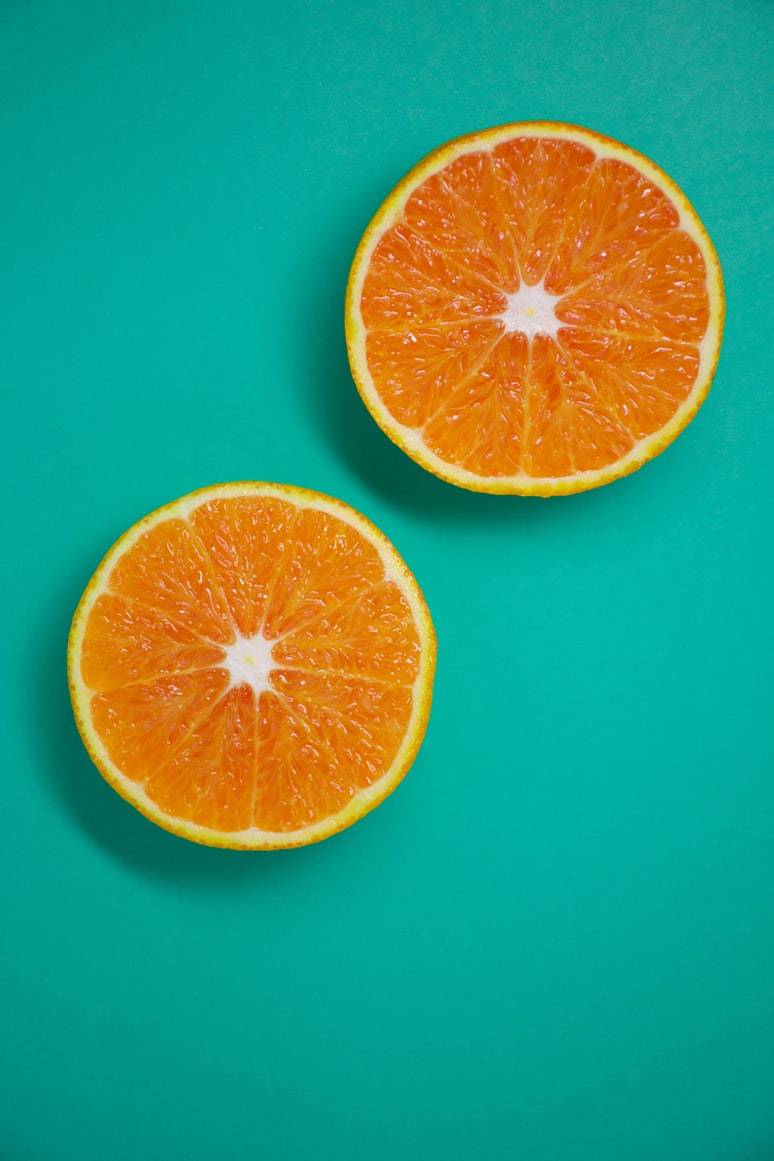
Oranges are one of the best fruits to eat on a low fructose diet. Most of the sugars found in oranges are simple to digest sugars and not hard to break down like fructose can be. Oranges are also high in water, fiber, and Vitamin C which all have digestive benefits.
Oranges are a great choice for those following a low fructose diet, as they contain mostly simple sugars that are easy to digest. In addition to being low in fructose, oranges are also a good source of water, fiber, and Vitamin C, all of which can help improve digestion.
A single orange contains about 11 grams of sugar, but only 4 of those grams are fructose. This makes it a great snack for those looking to reduce their fructose intake. Oranges are also high in antioxidants, which can help protect your body from damage caused by free radicals.
Oranges are also a great source of potassium, which helps regulate blood pressure and can reduce the risk of stroke and heart attack. Additionally, oranges are a good source of folate and thiamin, both of which are important for proper brain function.
Oranges are also a great source of dietary fiber, which helps keep you full and can aid in digestion. The fiber in oranges can also help reduce cholesterol levels and promote healthy digestion.
Kiwi Fruit
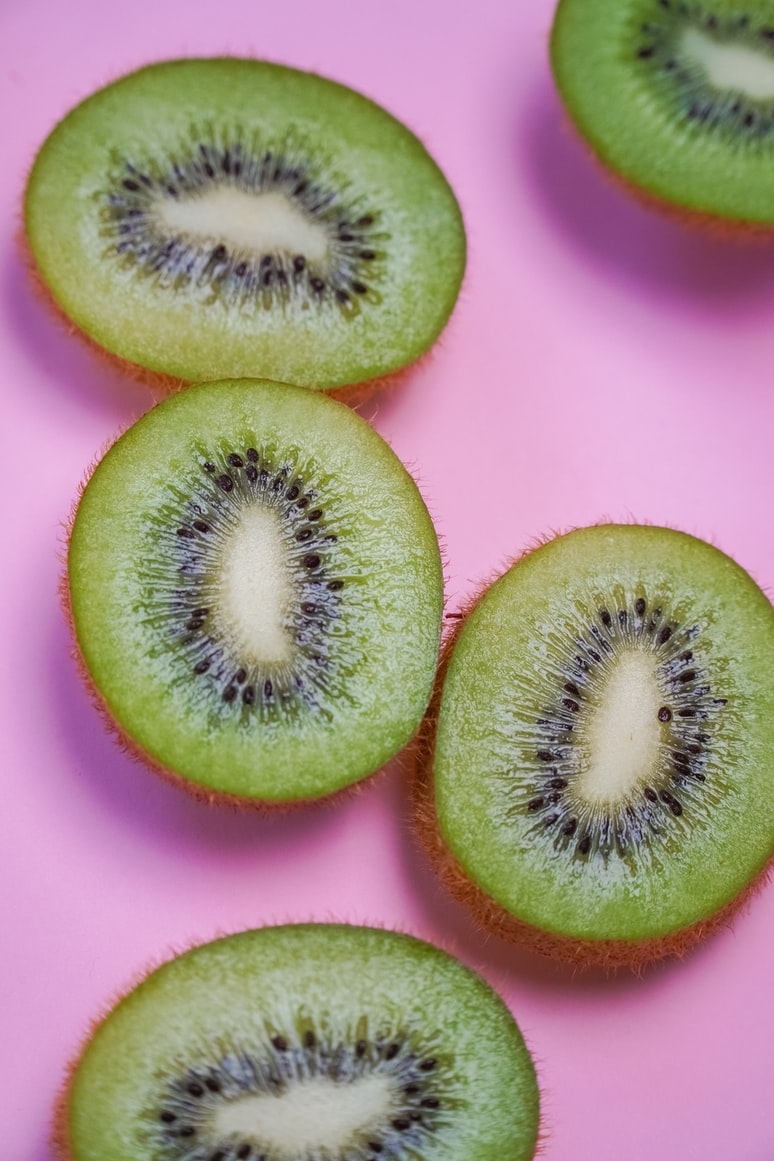
Kiwi is especially helpful for digestion since it’s been linked to reducing gas, bloating, and inflammation. It also has twice the Vitamin C of oranges for less than half the calories per fruit. Kiwi fruit is also high in fiber and lower in carbs than many other fruits.
Kiwi fruit is an excellent choice for those following a low fructose diet because it is low in fructose and high in other beneficial nutrients. It is high in fiber, which helps to slow down the absorption of fructose and other sugars. It is also a great source of vitamin C, which helps to boost the immune system and fight off free radicals. Additionally, kiwi fruit is high in potassium, which helps to regulate blood pressure, and magnesium, which is important for bone health.
Kiwi fruit is also a good source of antioxidants, which can help to reduce inflammation and protect against chronic diseases. The antioxidants in kiwi fruit can also reduce oxidative stress, which is linked to aging and age-related diseases. Furthermore, kiwi fruit is a good source of carotenoids, which are beneficial for eye health.
Frequently asked questions
A low fructose diet is important for individuals who have difficulty absorbing or metabolizing fructose, such as those with fructose malabsorption or hereditary fructose intolerance. Reducing fructose intake can help alleviate symptoms like bloating, abdominal pain, and diarrhea, and promote overall digestive health.
Fruits that are low in fructose include berries (such as strawberries, blueberries, and raspberries), kiwi, grapefruit, lemon, lime, avocado, and green bananas. These fruits can be enjoyed by those on a low fructose diet without causing significant digestive distress.
Incorporate low-fructose fruits into your diet by adding them to smoothies, yogurt, salads, or as a snack. You can also use them as natural sweeteners in baked goods or desserts, or add them to savory dishes for a burst of flavor. Be mindful of portion sizes and monitor your body's response to ensure you're not consuming too much fructose.
On a low fructose diet, it's best to avoid fruits that are high in fructose, such as apples, pears, mangoes, cherries, and watermelon. Dried fruits, fruit juices, and certain fruit-based sweeteners like agave syrup and high-fructose corn syrup should also be limited or avoided.
Yes, you can still meet your nutritional needs on a low fructose diet by incorporating a variety of low-fructose fruits, vegetables, whole grains, lean proteins, and healthy fats. It's essential to maintain a balanced diet and work with a healthcare professional or dietitian to ensure you're meeting your nutritional requirements while managing your fructose intake.
Berries
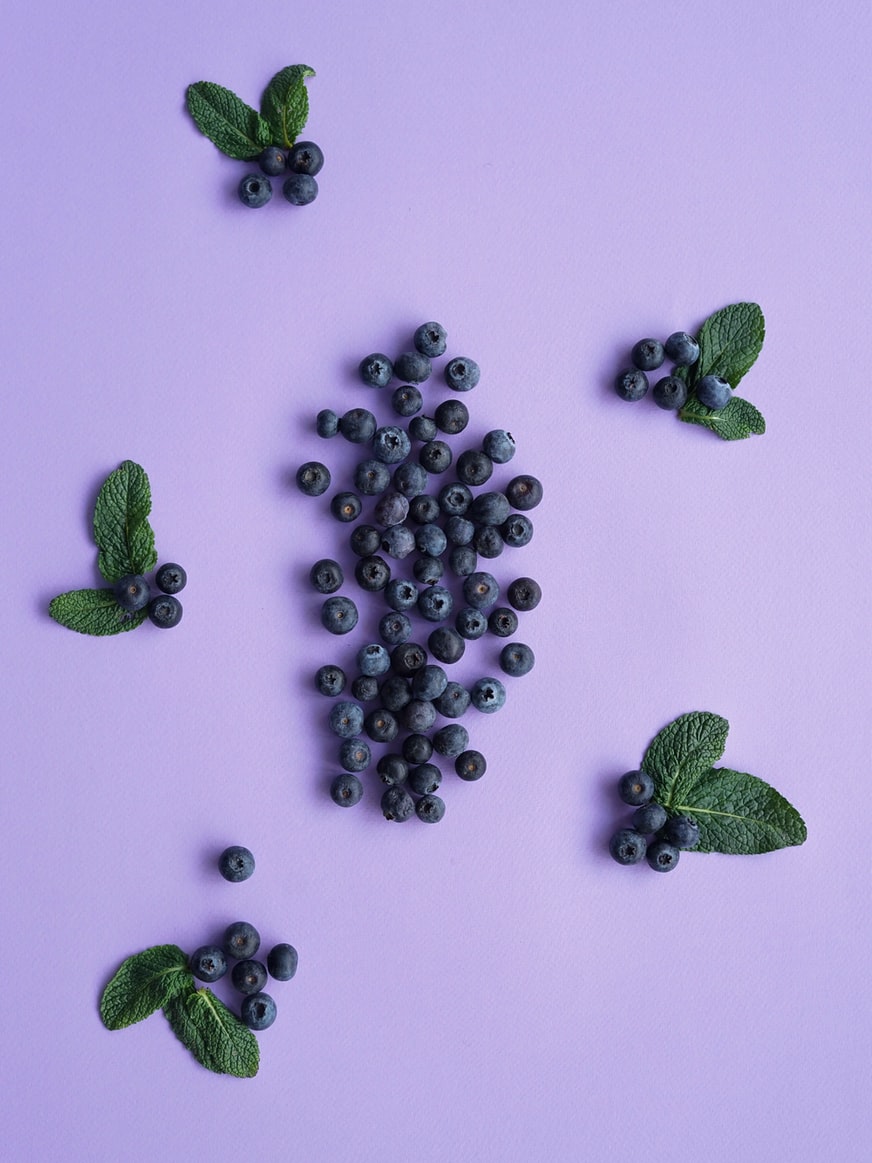
Blackberries and blueberries are especially helpful to the digestive tract since they’re high in fiber and help relieve gastrointestinal upset and inflammation. Blend them in a smoothie for even better digestive benefits or mash them into some well-cooked oatmeal or overnight oats.
Berries are a great addition to a low fructose diet. Not only are they low in fructose, but they are also full of other beneficial nutrients. Blackberries and blueberries are a great source of dietary fiber, which helps to keep your digestive system healthy and functioning properly. They are also a good source of vitamins A and C, as well as minerals like magnesium and potassium.
In addition to being low in fructose, berries are also low in calories and contain antioxidants that can help protect your body from damage caused by free radicals. They are also a good source of polyphenols, which have anti-inflammatory properties and can help reduce the risk of chronic diseases.
Berries can be eaten raw, blended into smoothies, or added to cooked oatmeal or overnight oats. They can also be used in baking, added to salads, or frozen and blended into a delicious frozen treat.
Berries are an excellent addition to any diet, but they are especially beneficial for those following a low fructose diet. They are low in fructose, but high in other important nutrients that can help to keep your digestive system healthy and functioning properly. Not only are they delicious, but they are also a great way to get your daily dose of vitamins and minerals.
Firm Bananas
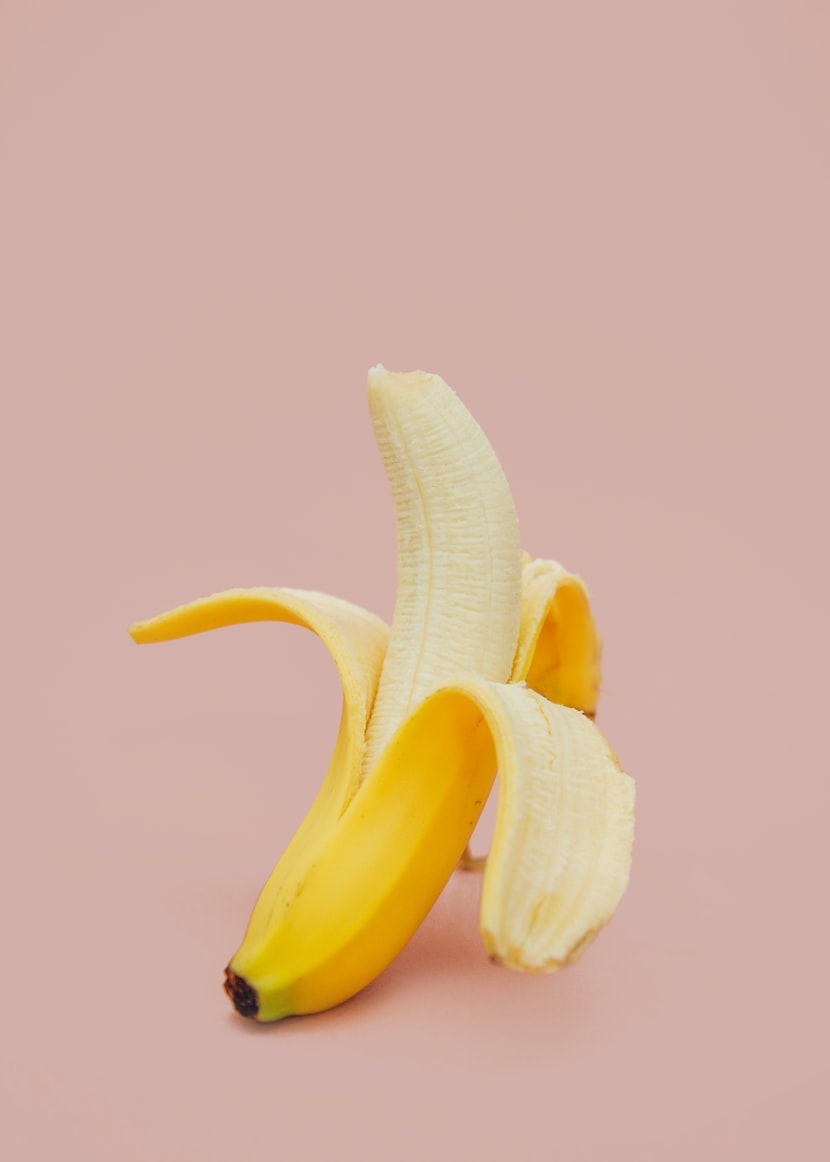
Bananas can be incredibly helpful for an upset tummy. Not ripe bananas are actually hard on digestion since they're higher in starch, which can be hard for the body to break down. Yellow yet firm bananas help relieve stomach ulcers, though eating too many at one time may trigger gas. Have one or two bananas a day but space them out.
Bananas are a great fruit to include in a low fructose diet. They are naturally low in fructose and are a good source of nutrients such as potassium, magnesium, and vitamin B6. Bananas are also a good source of dietary fiber, which can help to reduce cholesterol levels and keep you feeling full for longer.
When it comes to eating bananas, it is important to choose ripe bananas. Ripe bananas are higher in sugar and fructose, so if you are looking to reduce your fructose intake, it is best to choose yellow yet firm bananas. Eating too many ripe bananas at one time can trigger gas, so it is best to space them out throughout the day.
Bananas are a great fruit to eat for digestive health. Firm bananas help to relieve stomach ulcers and can also help to ease an upset stomach. Bananas are also high in pectin, which helps to reduce inflammation and can help to reduce the symptoms of irritable bowel syndrome.
Bananas are also a good source of antioxidants, which can help to protect your cells from damage caused by free radicals. They are also a good source of energy and can help to boost your mood and provide you with a natural energy boost.
Cantaloupe
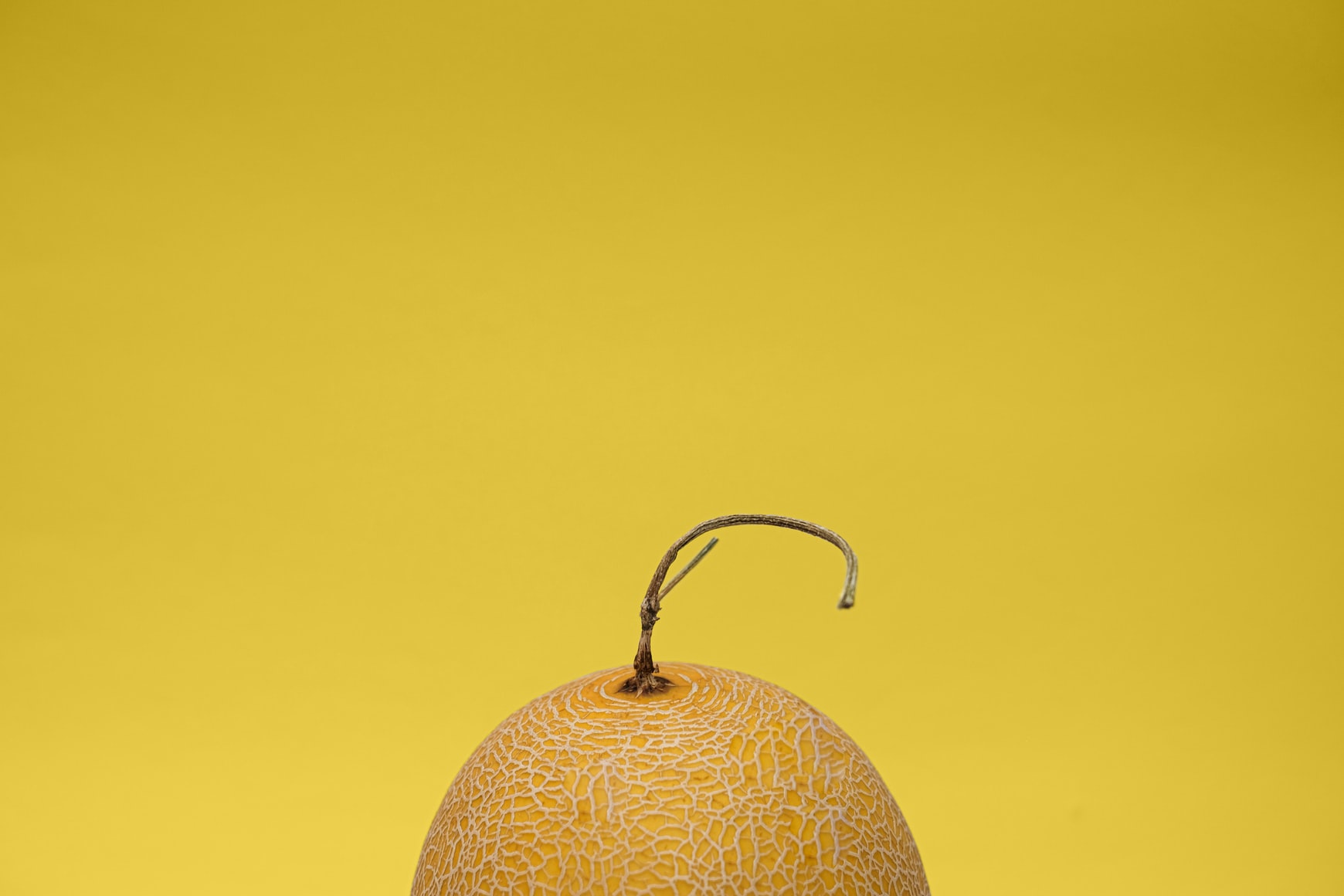
Cantaloupe is especially low in sugar and high in water content. It’s one of the most low-calorie fruits and one of the best for an upset stomach. Not all melons are equal, however. Watermelon is especially high in fructose so it should be avoided. Stick to honeydew and cantaloupe instead.
The flesh of cantaloupe is not only refreshing but also packed with essential vitamins such as vitamin A and vitamin C. These nutrients are vital for maintaining healthy skin and immune function. Its high water content ensures hydration while the fiber supports digestion. It's a perfect summertime fruit to include in your diet. Consuming cantaloupe can also be beneficial for those looking to manage their weight due to its low energy density. It provides a feeling of fullness without the added calories, making it an ideal choice for anyone monitoring their calorie intake.
Related Videos about
Papaya
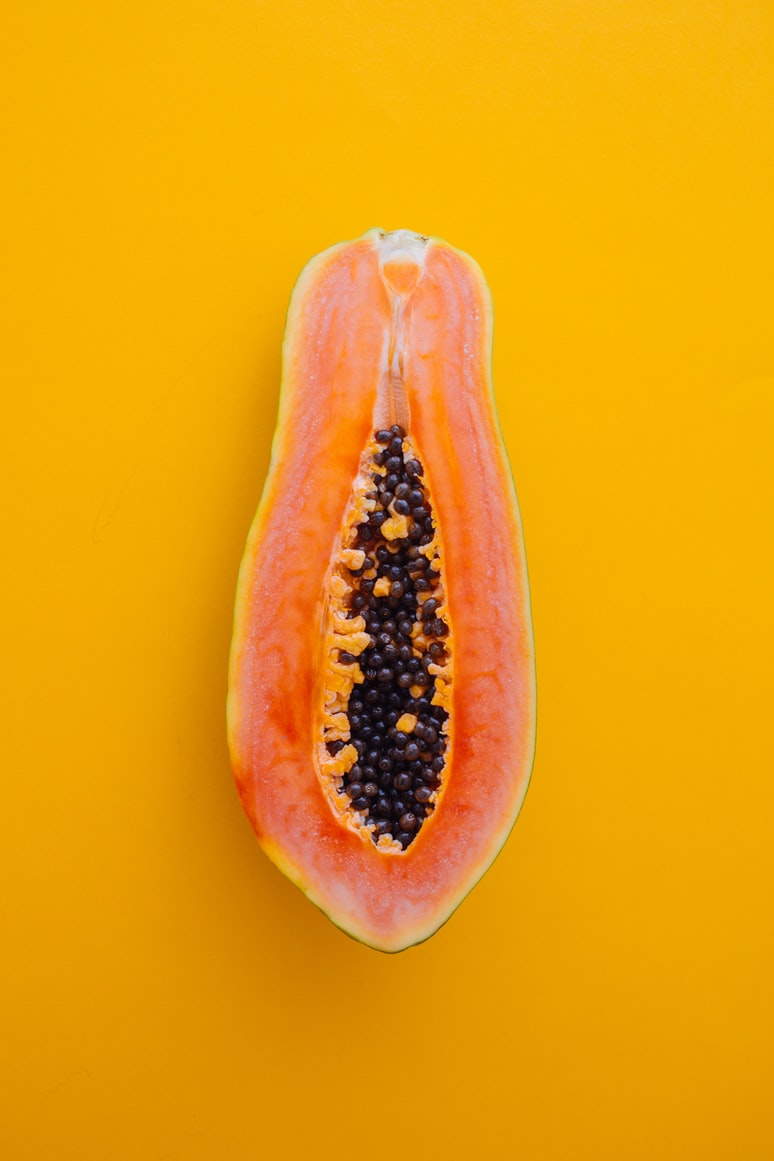
Papaya actually contains digestive enzymes itself, so it’s fantastic for an upset stomach and fructose intolerance. Papaya is also lower in sugar than other tropical fruits like pineapple and plantains. I like the frozen papaya purees which you can use in smoothies, dairy-free milkshakes, and more. You can also eat whole papaya sliced or pureed in any recipe you choose.
Papaya is a great source of vitamins A and C, as well as fiber and folate. It also contains the digestive enzyme papain, which can help break down proteins and other substances. Studies have shown that papaya can help reduce inflammation and improve digestion. Papaya is also rich in antioxidants, which can help protect against free radical damage. Furthermore, papaya has been linked to a reduced risk of certain types of cancer, including colon, breast, and prostate cancer. Eating papaya can also help balance blood sugar levels and reduce cholesterol.
Pumpkin
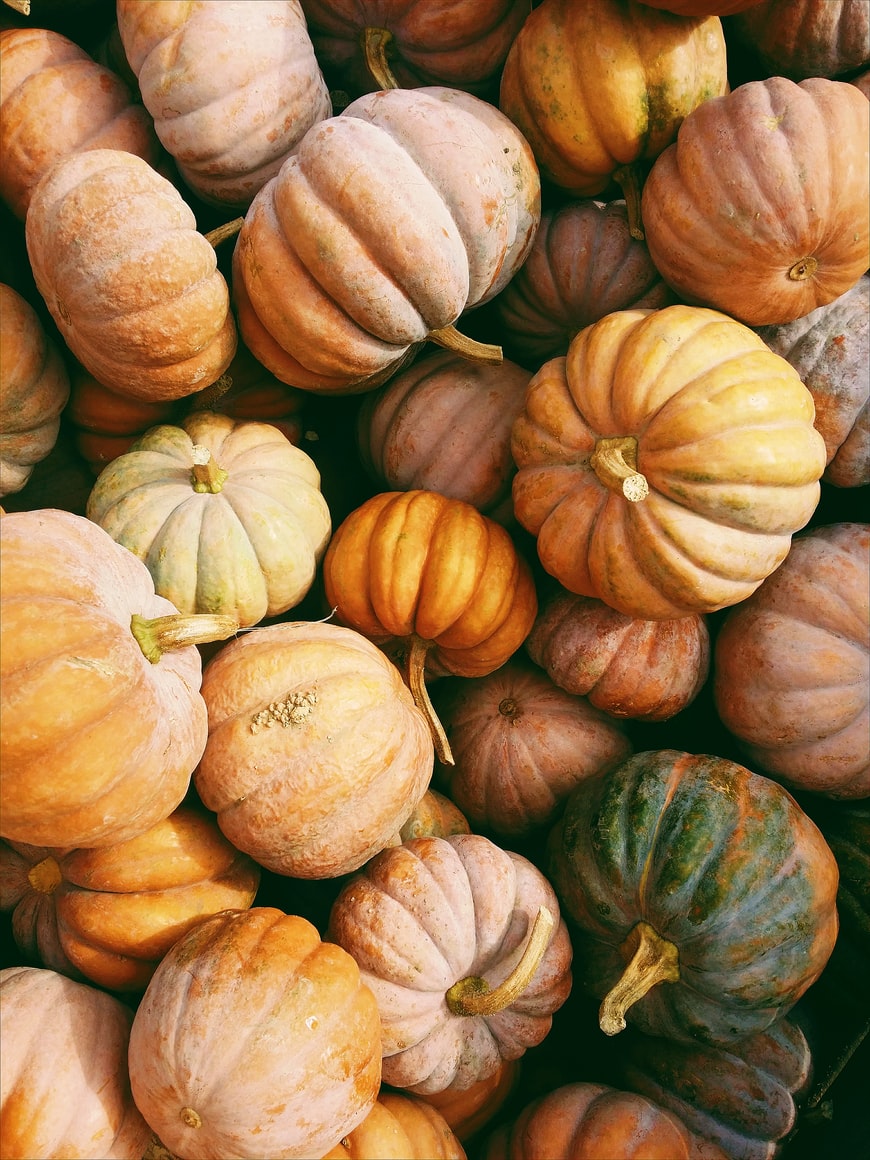
Pumpkin is actually a fruit, not a vegetable. It’s also lower in sugars than any other common fruit and especially rich in water and fiber. If you suffer gas and bloating, along with constipation, canned pumpkin is your best friend! Fresh is great too, though a bit more troublesome to cook and puree for everyday use.
Pumpkin is a great addition to a low fructose diet. It is a nutrient-dense food, packed with antioxidants, magnesium, potassium, and vitamins A, C, and E. It also contains tryptophan, which can help to reduce stress and promote better sleep.
Pumpkin is also a great source of dietary fiber, which helps to regulate digestion and keep you feeling fuller for longer. Eating pumpkin can help to reduce constipation and bloating, as well as promote healthy weight management. Fiber also helps to reduce LDL cholesterol levels, which can help to reduce the risk of heart disease.
In addition to being low in fructose, pumpkin is a good source of complex carbohydrates, which provide a slow-release of energy. This can help to reduce sugar cravings and provide sustained energy throughout the day.
Pumpkin is also a great source of beta-carotene, which is converted to vitamin A in the body. Vitamin A is important for healthy vision, immune system function, and skin health. Eating pumpkin can also help to reduce inflammation and protect against free radical damage.
Avocado
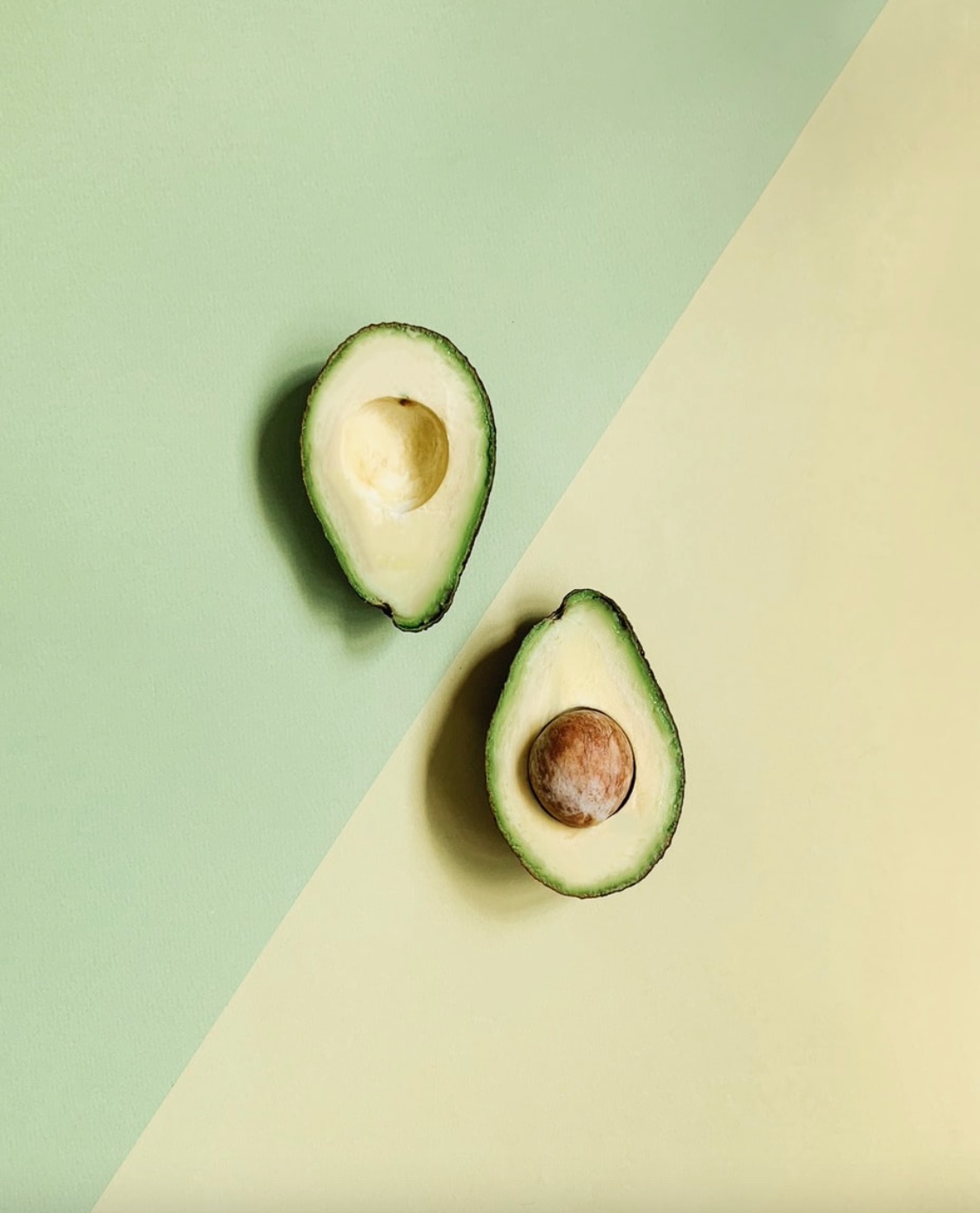
Avocados are also a fruit, not a veggie and are virtually sugar-free. They are high in fat though, so have ¼ avocado per serving for digestion and calorie control purposes. Avocados are especially rich in water and soluble fiber, which are two important nutrients to keep IBS symptoms at bay.
Avocados are a great choice for those looking to follow a low-fructose diet. They are packed with essential vitamins and minerals, including potassium, vitamins B6, C, E and K, and folate. Avocados are also a great source of heart-healthy monounsaturated fats and are low in saturated fat.
Avocados are naturally low in sugar and contain no fructose, making them an ideal choice for those looking to reduce their fructose intake. They are also a great source of dietary fiber, which is beneficial for digestion, and can help reduce symptoms of irritable bowel syndrome (IBS).
In addition to being a great fruit choice for those following a low-fructose diet, avocados are also a great addition to many dishes. They can be added to salads, sandwiches, wraps, and even smoothies. Avocados can also be used as a substitute for mayonnaise and butter in recipes.
Avocados are a great source of healthy fats and can help to reduce the risk of heart disease. They are also high in antioxidants, which can help to fight inflammation and protect the body from free radical damage.
Acai
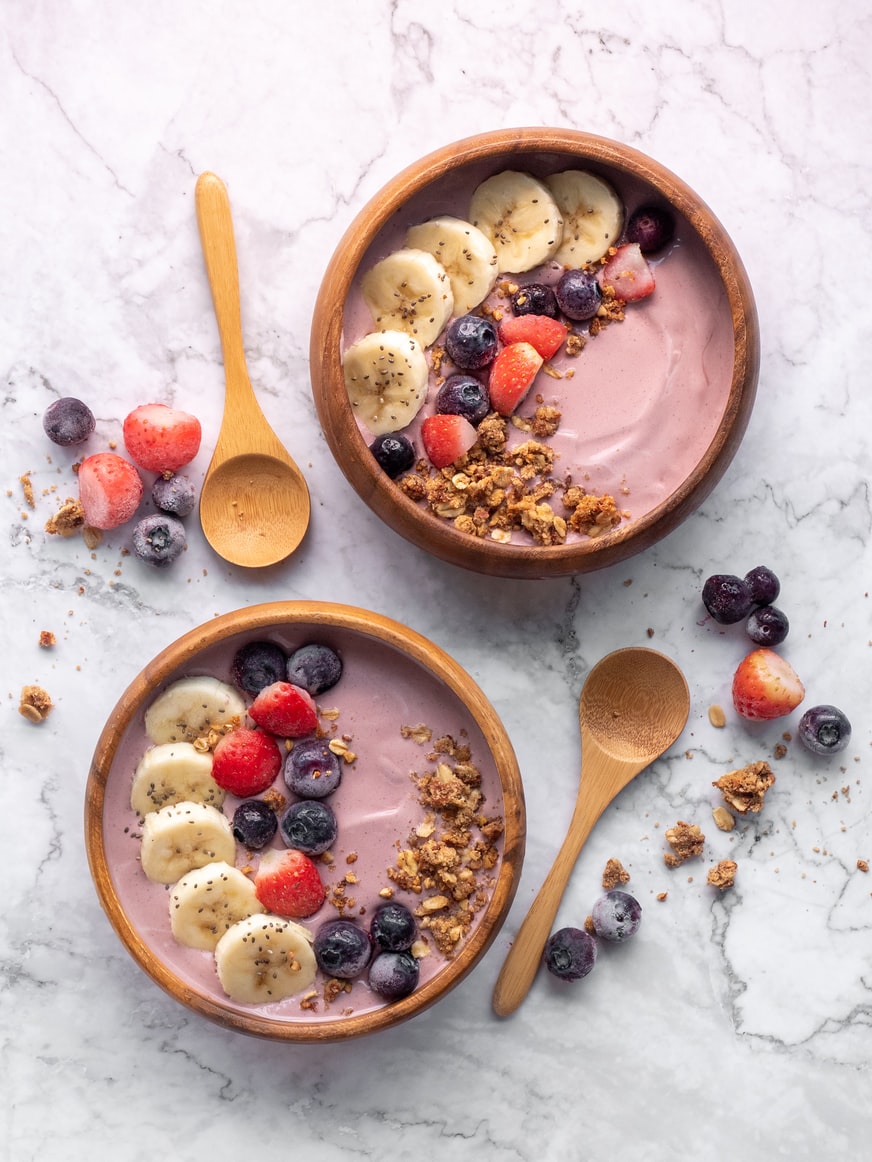
Acai fruit is my favorite fruit to eat on a low fructose diet. It’s sugar-free so it’s naturally fructose-free. I like using the frozen acai puree packs. Acai is also a rich source of omega 3s, fiber, and contains more antioxidants than any other fruit aside from maqui berries.
If you’re on a low fructose diet, you’ll need to eliminate apples, pears, cherries, watermelon and dried fruits, since those are some of the worst offenders. Some people tolerate green apples since they’re lower in sugar than red varieties and applesauce is also an option, though not tolerated by everyone.
Acai fruit is a popular choice for those following a low fructose diet, as it is naturally sugar-free and rich in nutrients. It is a good source of omega-3 fatty acids, fiber, and antioxidants, making it a great addition to any diet. In addition to being low in fructose, acai also has a low glycemic index, making it a suitable option for those with diabetes. However, it is important to note that while acai is a great fruit for a low fructose diet, it should be consumed in moderation as part of a balanced diet. Other fruits that are low in fructose and safe for those on a low fructose diet include berries, citrus fruits, and kiwi.
Clementine
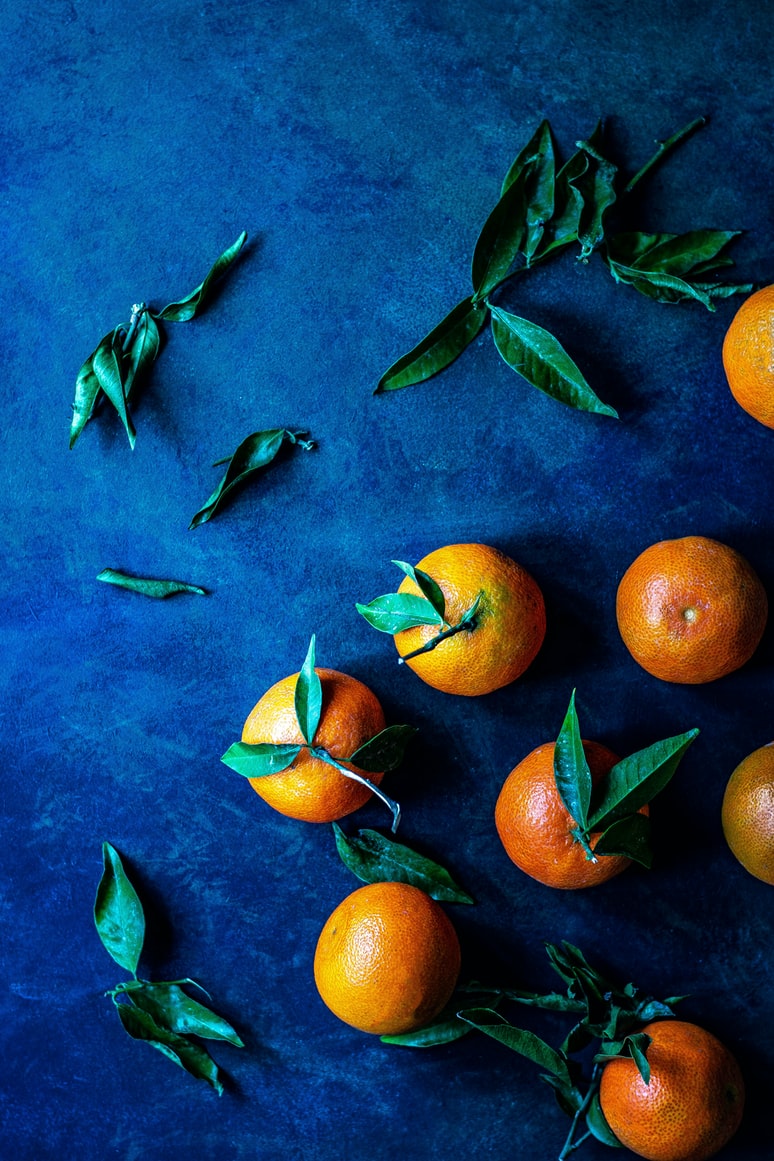
A tangor is a citrus fruit hybrid of a willowleaf mandarin orange and a sweet orange named after Clément Rodier, a French missionary who discovered and propagated the cultivar in Algeria. Smaller and easier to peel, clementines make a perfect snack or addition to a fruit salad. Rich in potassium, it's a perfect fruit to add to your low fructose diet.
Coconut
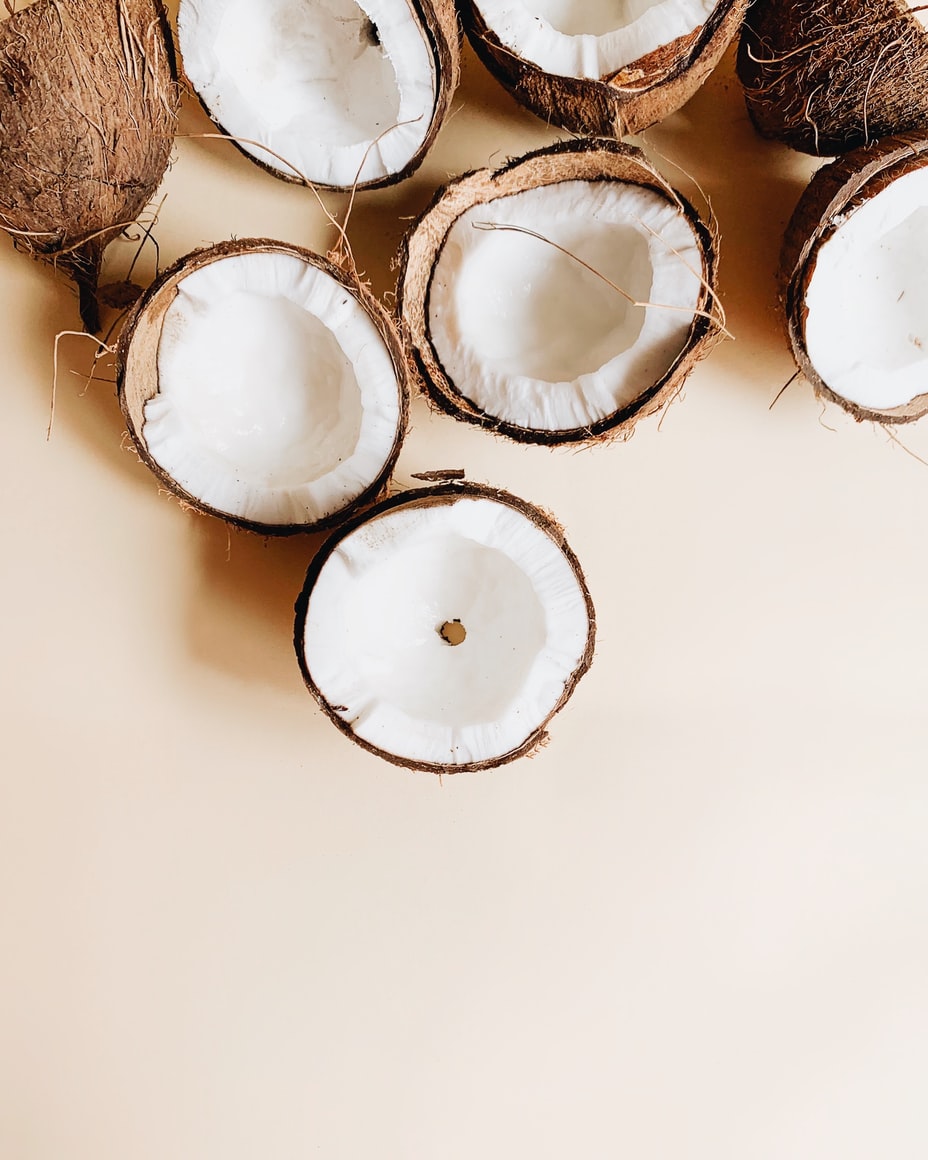
Coconut is a wonderful addition to a low fructose diet, it is high in fiber and MCTs and may have a variety of health benefits. From improved heart health, weight loss to improved digestion, it's a fruit that can easily be used in fruit salad and desserts. However, because it is high in calories and saturated fat, it should be consumed in moderation. Overall, unsweetened coconut meat is a healthy addition to any diet.
Coconut is a great fruit to include in a low fructose diet because it is high in fiber and MCTs (medium-chain triglycerides). Studies have shown that consuming coconut may have a variety of health benefits, such as improved heart health, weight loss, and improved digestion. It can easily be incorporated into fruit salads, desserts, and other recipes.
However, coconut is high in calories and saturated fat, so it should be consumed in moderation. For those looking to get the most out of their coconut, try to opt for unsweetened coconut meat and avoid pre-sweetened varieties. When choosing coconut, look for a fresh coconut with a smooth, tight-fitting brown shell, and avoid coconuts with cracked shells, mold, or a sour smell.
Coconut can be enjoyed in a variety of different ways. It can be used in smoothies, added to oatmeal or yogurt, or used in baking. It can also be used to make coconut milk or coconut oil, which can be used for cooking and baking. Coconut can even be used as a topping for pancakes, waffles, or ice cream.
Grapes
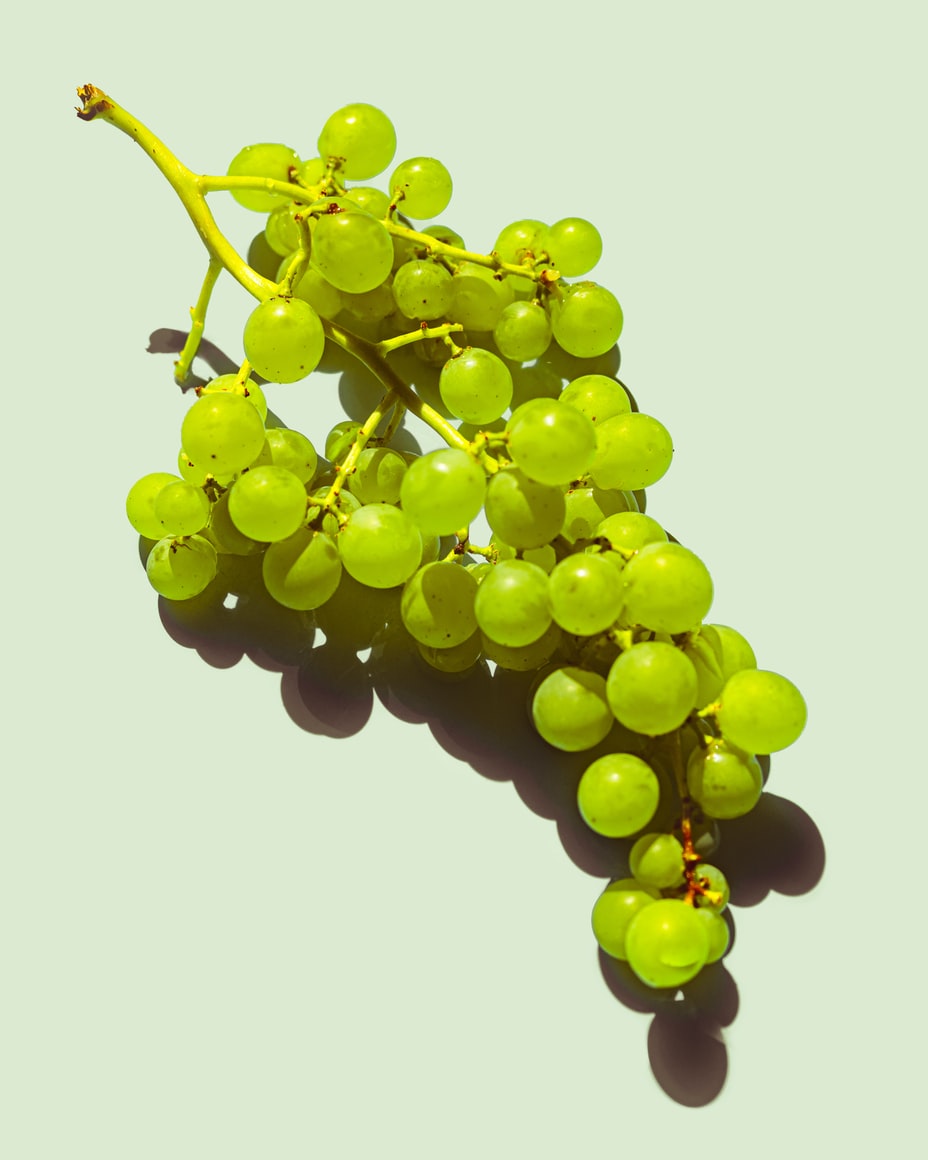
Grapes are a wonderful fruit and an excellent addition to fruit salads or a perfect side for a beautiful cheese plate. Low in fructose, but slightly high in sugar, grapes can be consumed in limited amounts. Nothing tastes better than a plate of delicious goat cheese, grapes and organic crackers.
.
Grapes are not only a tasty addition to meals, but they also offer numerous health benefits. They are rich in antioxidants, which help protect the body from free radicals and reduce the risk of chronic diseases. Grapes also contain high levels of vitamins C and K, as well as minerals like potassium and manganese. They are also a good source of fiber, which aids in digestion and promotes a healthy gut. When choosing grapes, opt for organic varieties to avoid consuming pesticides. Additionally, red and purple grapes contain resveratrol, a compound that has been linked to reducing inflammation and improving heart health. Enjoy grapes in moderation as part of a balanced, low fructose diet.
Honeydew
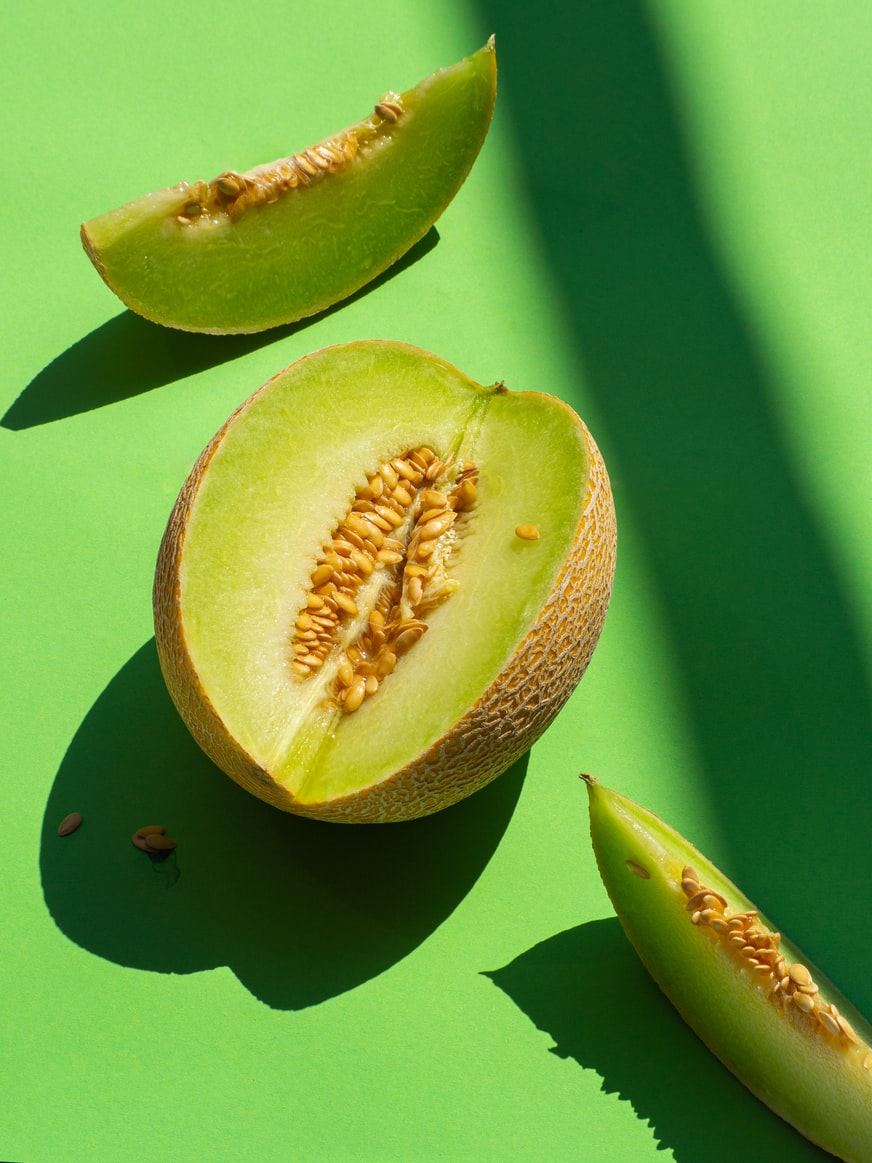
Rich in folate, vitamin K and magnesium, honeydew makes a perfect fruit that can benefit your bone health. Excellent in a fruit cup or on its own, it can also be paired with aged prosciutto for a fabulous starter or a full meal in its own right.
Honeydew is a juicy and refreshing fruit that is low in fructose, making it a great choice for those following a low fructose diet. It is also packed with essential nutrients such as folate, vitamin K, and magnesium, which are important for maintaining strong and healthy bones. Additionally, honeydew can be enjoyed in a variety of ways, from adding it to a fruit salad to pairing it with savory prosciutto for a delicious and nutritious meal. With its low sugar content and numerous health benefits, honeydew is definitely a fruit worth incorporating into your diet.
Pineapple
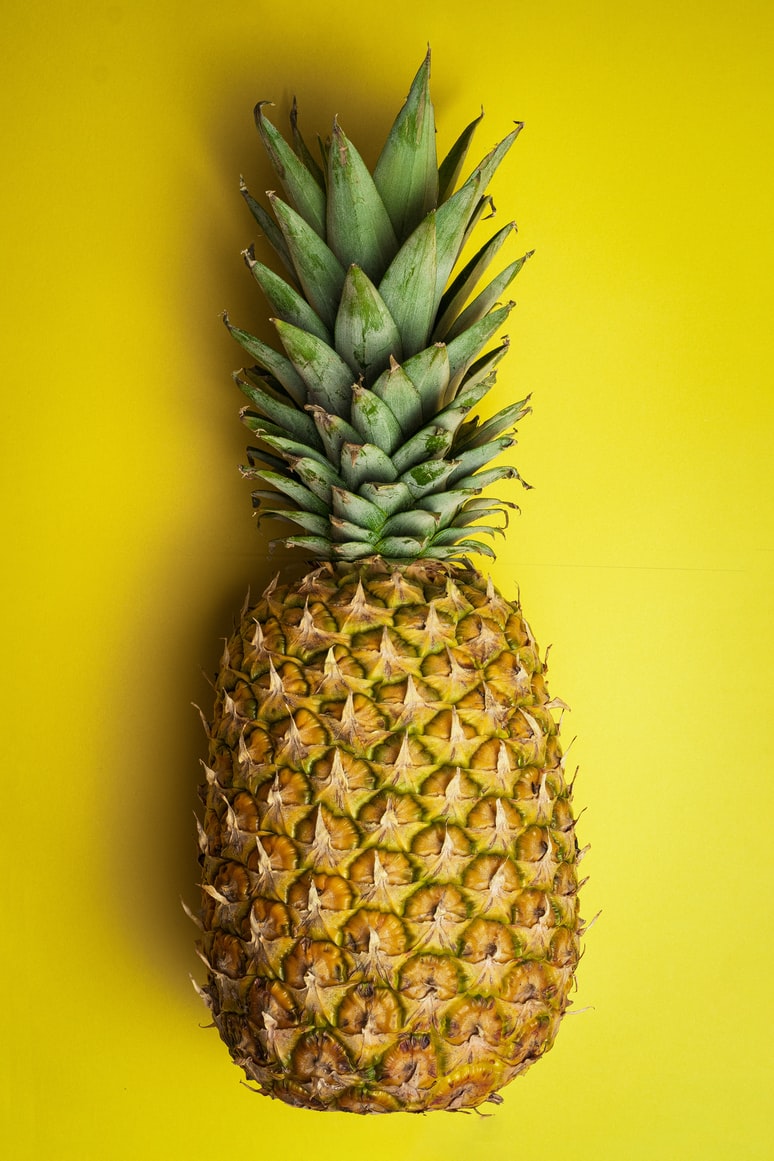
Extremely low in calories (only 82 gm per cup), pineapple is full of nutrients and helps your body fight inflammation, improves digesting, heals tissues etc. Perfect for complimenting the taste of sauteed chicken, pineapple makes great addition to fruit salads or can be enjoyed on its own.
It’s best to test the waters with all fruits and eat them one at a time to see how you react if you’re considering a low fructose diet. If you eat a low fructose diet, which of these fruits do you eat and/or avoid?
For a full list of low fructose diet, please consult the table below, please do take a look at the list of the fruit to avoid:
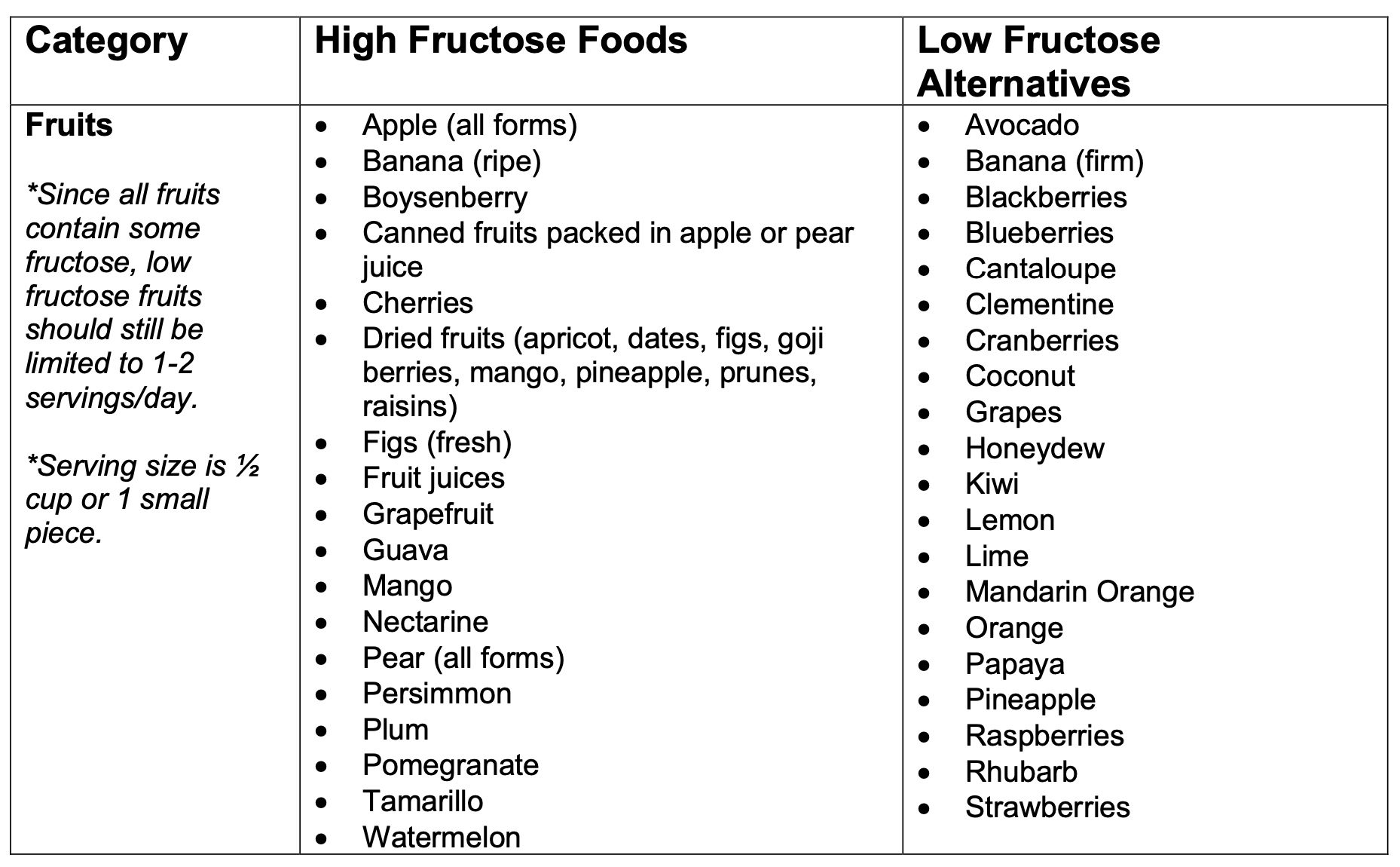
Sources : healthyeating.sfgate.com, medicine.virginia.edu, solbliss.com, sambazon.com


Feedback Junction
Where Thoughts and Opinions Converge